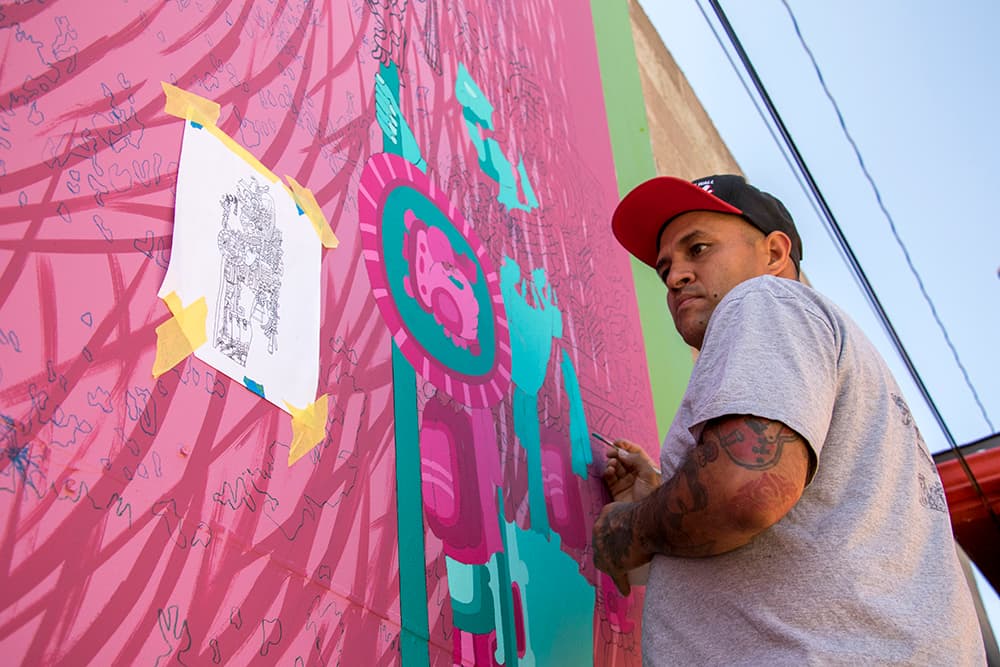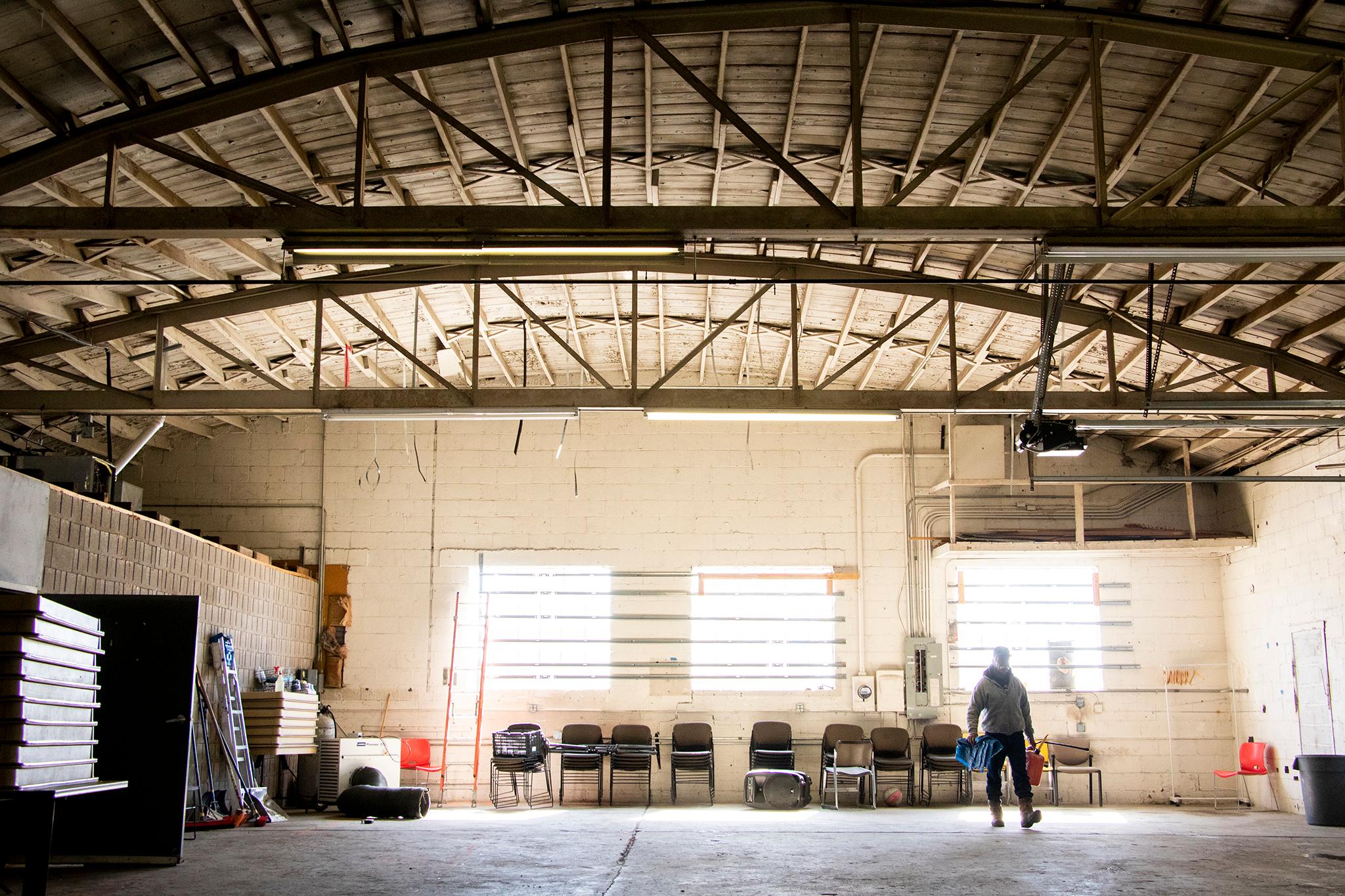They're looking ahead, but artists Santiago Jaramillo and Erick Garcia are also a bit nostalgic about a battered warehouse at 3738 Morrison Road that is about to undergo a transformation.
"Remember?" Jaramillo said to Garcia. He laughed, then went on to describe an exhibition of metal sculpture in the warehouse in the Westwood neighborhood where he was born and raised. A storm descended during the show. The roof leaked. As a result, Garcia said, one of his sculptures later rusted.
Thursday, the space was filled not with art and puddles of rain, but with neighbors holding plates of tostados and listening to Jaramillo, Garcia and other community leaders talk about their plans for the future. They envision that in a few years, the campus at 3738 Morrison will include a full-service grocery store owned by the Westwood Food Cooperative. A new building will be erected for the store on the large lot. The warehouse will be renovated as a home for a watertight gallery, a commissary kitchen that local entrepreneurs can use to get food businesses off the ground, and a chocolate confectionery and café. The construction fence is up and Thursday's gathering was the last in the warehouse before it closed for remodeling.
The former auto body shop and junkyard at 3738 Morrison is owned by Re:Vision. The food-oriented nonprofit with offices down the road is undergoing a transformation itself as it responds to what Westwood residents say they need.
Friends Eric Kornacki and Joseph Teipel were together on a service learning project in Nicaragua as students at the University of Denver. They graduated knowing they wanted to work in community development and be led and informed by the communities that wanted to develop. Kornacki and Teipel discovered that the group that would become Westwood Unidos had already identified such priorities as a lack of sidewalks, traffic safety and other challenges linked to the neighborhood's man-made geography; finding jobs; and accessing healthy food.
"These are the top three challenges that the community was raising up," Teipel said.
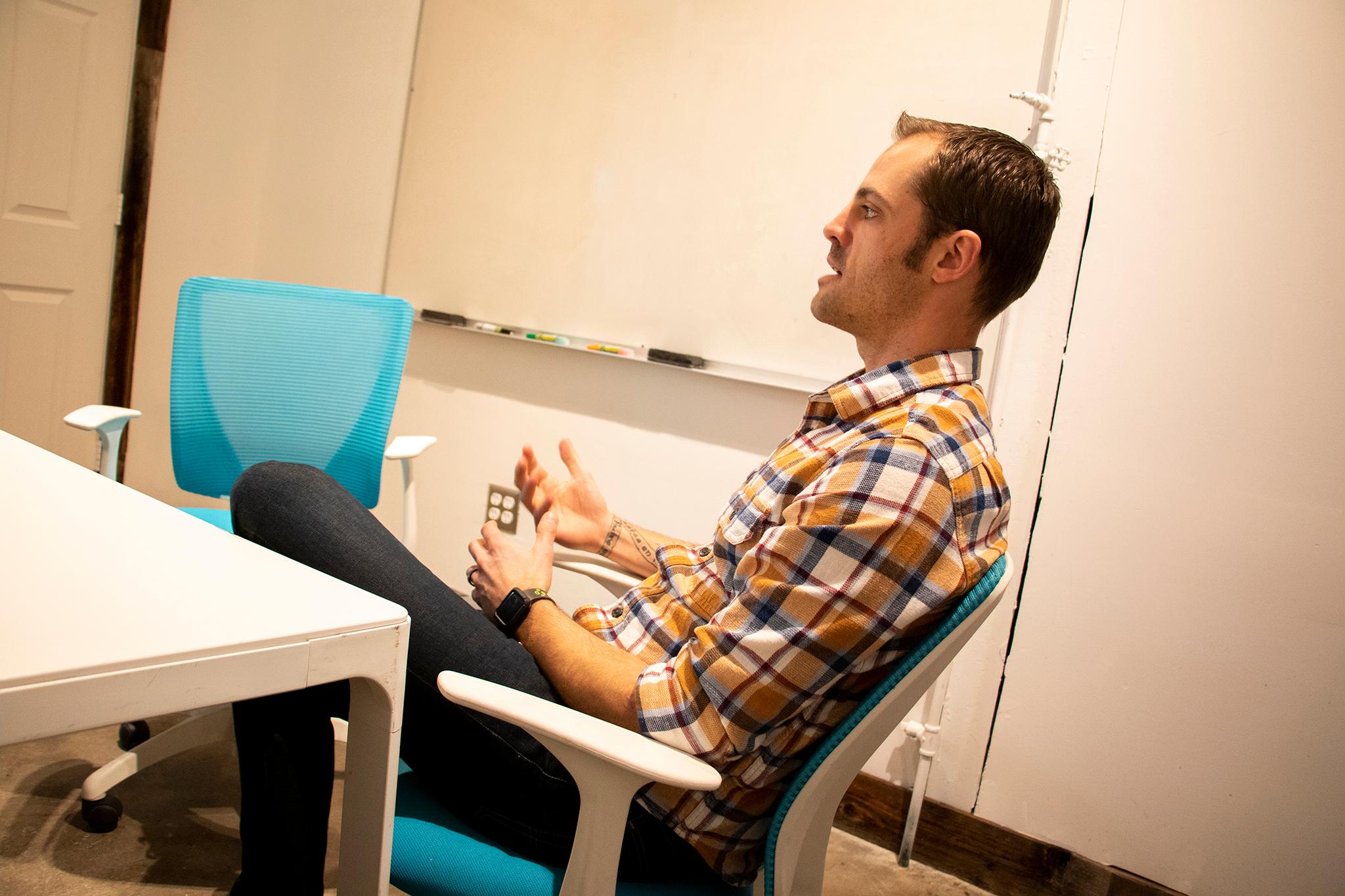
Re:Vision, founded in 2007, created a backyard farming project in 2009 with seven Westwood families. Since then the program has spread to a dozen southwest Denver neighborhoods and helped plant 2,000 gardens. Gardeners were trained by promotoras, or navigators, hired from the community. The promotoras have built skills and now in addition to offering gardening advice they work as community organizers who can connect their neighbors to resources on immigration, health and other issues.
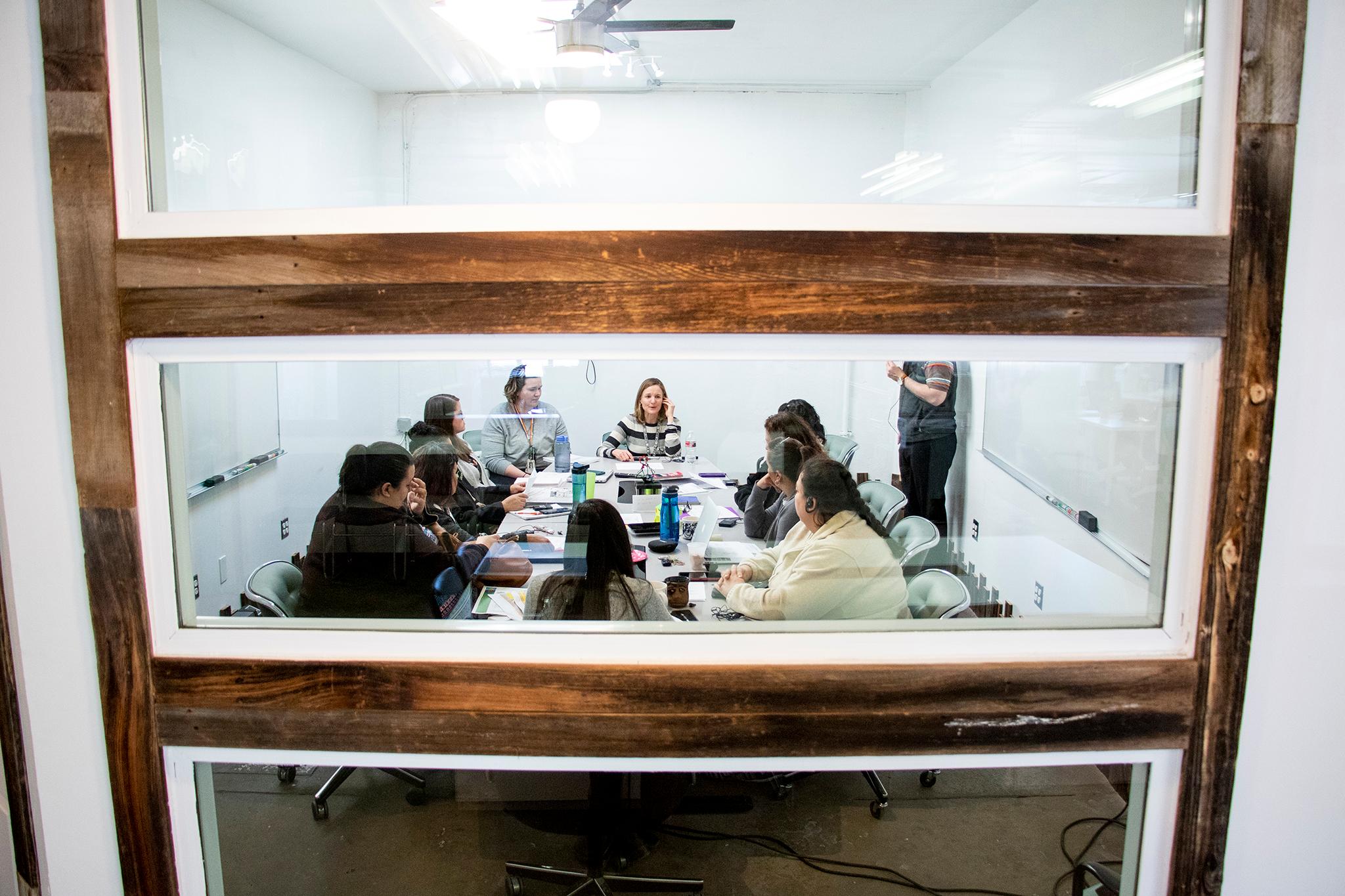
Re:Vision also has an urban farm at the 3738 Morrison Road site that includes a hydroponic garden created from shipping containers. Half the produce is sold to farm-to-table restaurants and half donated or sold at low-cost to help the needy or distributed to the community through the Westwood Food Cooperative, which is independent but a close partner of Re:Vision.
Re:Vision's farm manager David de Santiago has lived in Westwood since he came to the United States 18 years ago. He first encountered Re:Vision when his wife planted a garden with the nonprofit's support seven years ago. As he puts it, de Santiago "was born in the fields" of his hometown of Fresnillo, Zacatecas, in northern Mexico. He worked as a mechanic when he first came to the United States. Re:Vision gave him a chance to get back to his roots.
"Plants are my life," he said. "When I got this opportunity (at Re:Vision) I gave it my entire life."
De Santiago said his four sons have grown up volunteering for Re:Vision and watching him work on the farm in the city, giving them a link to family and Mexican traditions.
"Now we're not losing our culture," said de Santiago, who was wearing a dark jacket and cap brightened by Re:Vision's leaf-green logo.
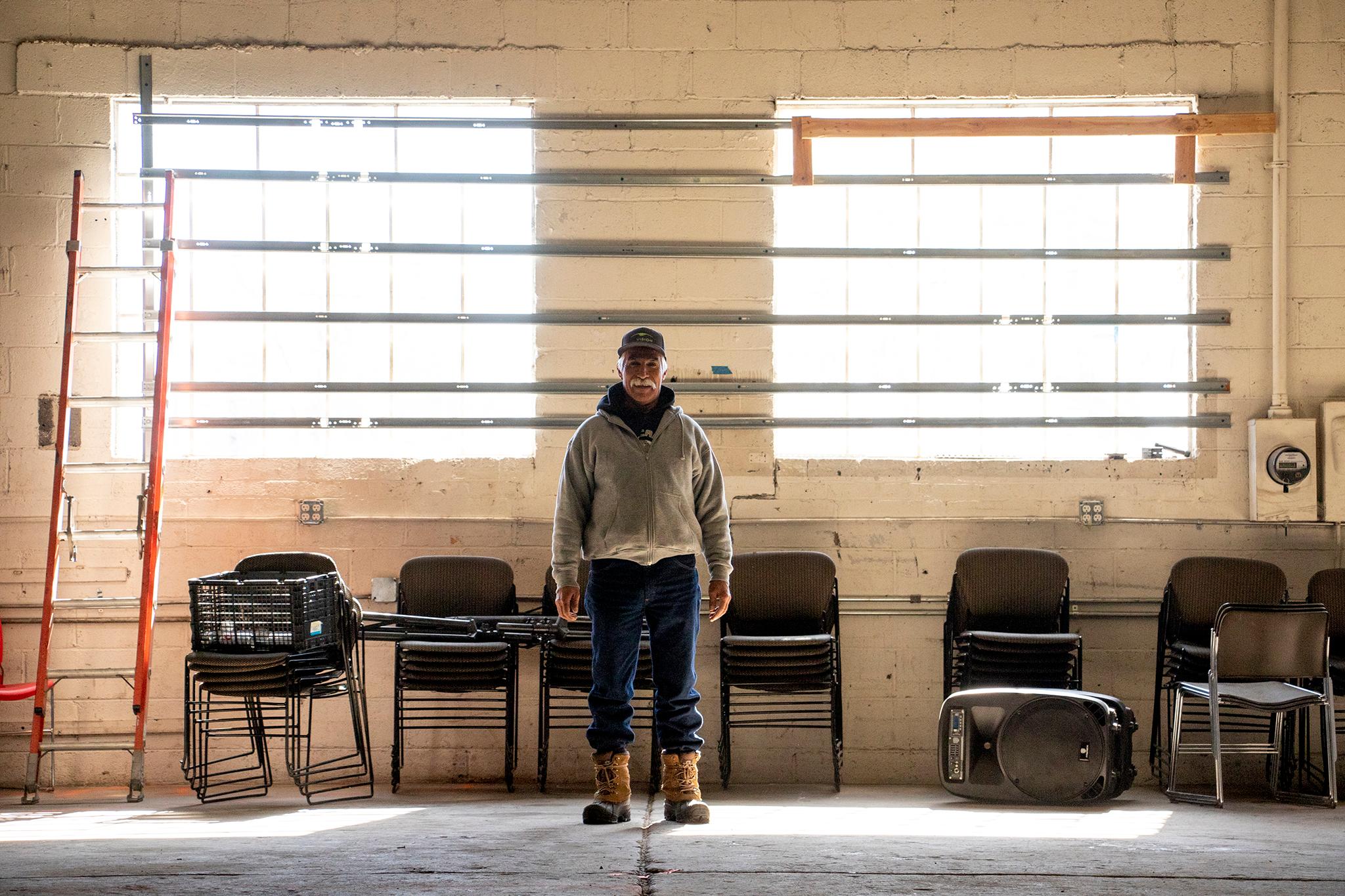
In 2014 Denver's Office of Economic Development, in an allocation of federal Community Development Block Grant funds, issued a $1.2 million loan to help Re:Vision buy 3738 Morrison Road, which at the time was littered with trash and decrepit warehouses.
"When you think about urban blight, this is the property," Teipel recalled.
Citing the lack of access to grocery stores of Westwood's more than 6,000 residents and their high rates of obesity and other diet-related disease, OED said the loan won't have to be repaid if Re:Vision ensures the site supports community food access for at least 20 years.
The loan "sort of inadvertently ... put us in the role of property developer," Teipel said. So far, $4.3 million has been raised for the development project known as RISE, for resilient, inclusive, sustainable economy.
The Westwood Food Cooperatives grocery store will be 10,000 square feet. At that small size it would be swamped by the debt required to build and outfit it, Teipel said. Hence the other uses on the site that is already a community hub.
The food co-op has been running a farmers market at 3738 Morrison that will move to Re:Vision's offices at 3800 Morrison during the renovation. In addition, 3738 Morrison has been one of the venues for the Westwood Chile Fest, a celebration of food and music; and an annual exhibition of art work inspired by Frida Kahlo. Both the chile and Kahlo events are sponsored by the BuCu West Development Association. BuCu West -- the name of the neighborhood development association is derived from business and culture -- will manage the planned gallery. Its board president is Jaramillo, the artist.
The Morrison Road-based Kitchen Network, which since 2004 has been incubating food businesses in Denver, will have a professional kitchen and a commissary that entrepreneurs can rent by the hour, said Garcia, who in addition to being an artist is Kitchen Network's director of operations.
Pastry chef Damaris Ronkanen was at Thursday's gathering offering samples of her Cultura Craft Chocolate wares to follow the tostados. Ronkanen, who now works out of a maker space in northeast Denver, will be making chocolates from cacao and serving her candies as well as drinks and snacks in the renovated warehouse.
Jaramillo, a third-generation Westwood resident, has already painted several bold murals at 3738 Morrison. He plans an Aztec-themed mural and three sculptures to complete the renovation.
